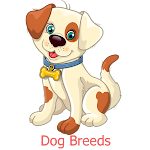
Introduction
The Cairn Terrier is a small, lovable, and energetic breed known for its playful nature and affectionate personality. This breed is a member of the Terrier group and has a long history of being loyal companions to their owners. In this guide, we will explore the characteristics, care needs, and overall temperament of the Cairn Terrier to help you decide if this is the right breed for you.
History
The Cairn Terrier originated in the Scottish Highlands, where they were originally bred to hunt and kill vermin on farms. Their small size and fearless nature made them well-suited for this task, and they quickly became popular for their ability to keep properties pest-free. The name "Cairn" comes from the cairns, or piles of stones, that were used to mark the graves of small animals that the Cairn Terriers hunted.
Physical Characteristics
The Cairn Terrier is a small but sturdy breed, with a shaggy coat that comes in a variety of colors including red, brindle, black, and grey. They have a compact build with a strong, muscular body and a fox-like expression. Their ears are small and pointed, and their tail is often carried high, adding to their alert and cheerful appearance.
Temperament
Cairn Terriers are known for their lively and outgoing personalities. They are intelligent, independent, and love to be the center of attention. Despite their small size, they are brave and confident, and they require regular exercise and mental stimulation to keep them happy and healthy. They are also loyal and affectionate towards their families, making them excellent companions for both individuals and families.
Care Needs
Since Cairn Terriers are energetic and lively, they require regular exercise to keep them physically and mentally stimulated. Daily walks, playtime, and interactive toys are essential for keeping them happy and healthy. Their shaggy coat also requires regular grooming to prevent tangles and matting, as well as routine grooming to keep it looking its best.
Training
Cairn Terriers are intelligent and eager to please, making them relatively easy to train. However, they can also be stubborn and independent, so consistent and positive reinforcement training methods are necessary. Early socialization and obedience training are also important to help them develop into well-behaved and well-adjusted adults.
Health
Cairn Terriers are generally healthy dogs, but like all breeds, they are prone to certain health issues. Some common health concerns for Cairn Terriers include hip dysplasia, patellar luxation, and progressive retinal atrophy. Regular veterinary check-ups, proper nutrition, and regular exercise are important for maintaining their overall health and well-being.
Conclusion
The Cairn Terrier is a lovable and energetic breed with a long history of providing companionship and joy to their owners. Their playful and affectionate nature, combined with their small size and easy maintenance, make them an excellent choice for individuals and families alike. With proper care, training, and love, the Cairn Terrier can be a wonderful addition to any home.
FAQs
Are Cairn Terriers good with children?
Yes, Cairn Terriers are generally good with children. They are playful and affectionate, and with proper socialization, they can be great companions for kids. However, it's important to supervise interactions between children and dogs to ensure that they are both respectful of each other's boundaries.
Do Cairn Terriers shed a lot?
Cairn Terriers have a double coat that sheds minimally, making them a good choice for individuals with allergies or those who prefer a low-maintenance grooming routine.
How much exercise do Cairn Terriers need?
Cairn Terriers are energetic dogs and require regular exercise to keep them happy and healthy. Daily walks, playtime, and interactive toys are essential to meet their exercise needs.
Are Cairn Terriers prone to any specific health issues?
While Cairn Terriers are generally healthy dogs, they are prone to certain health issues including hip dysplasia, patellar luxation, and progressive retinal atrophy. Regular veterinary check-ups and a healthy lifestyle can help prevent or manage these conditions.


